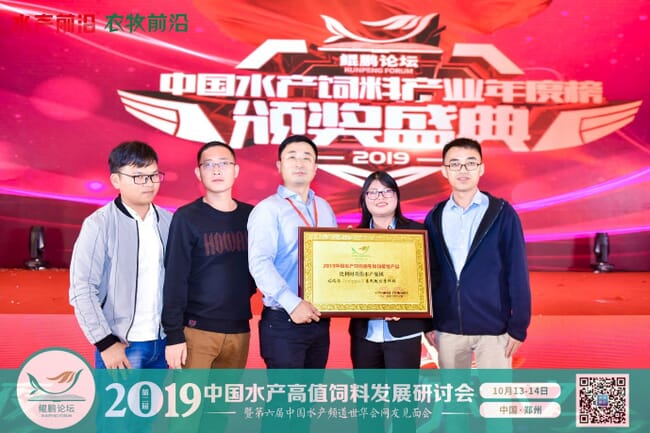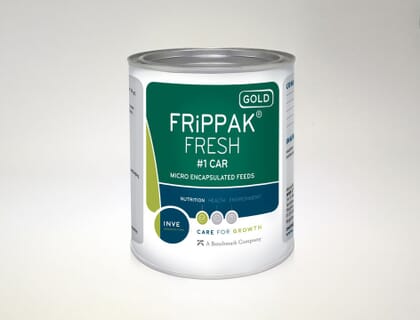The product, which won after voting by producers and industry experts, beat feed products from across China’s entire aquaculture sector.

Members of the INVE Aquaculture team, which is part of the UK-based aquaculture specialist company, Benchmark, were presented with the award at a ceremony on 13-14 October in Zhengzhou City.
The ceremony preceded the opening of the 12th Symposium of World’s Chinese Scientists on Nutrition and Feeding of Finfish and Shellfish and the 2019 Chinese Development Forum of the Best Value Aquaculture Feed and Nutrition, both of which take place this week.

© Frippak range is designed to reduce shrimp larvae's dependency on live feed, cutting Artemia needs by up to 50 percent
The Frippak range, which is designed for larval and post-larval production of penaeid shrimp, is engineered to reduce hatchery dependency on live feed, cutting Artemia needs by up to 50 percent without compromising survival, development and growth.
Chai Yu, INVE’s area manager for China, commented: “We’re delighted to receive this award for our Frippak range. Our work is entirely focused on delivering products that benefit our customers, promoting the health of their animals and reducing dependency on live feeds.
“We think Frippak is so favored by producers because it is designed with them in mind. It offers the best balance between live feed and formulated diets, contains high levels of fresh and natural ingredients, has improved buoyancy and promotes higher survival rates and shorter production cycles.”



